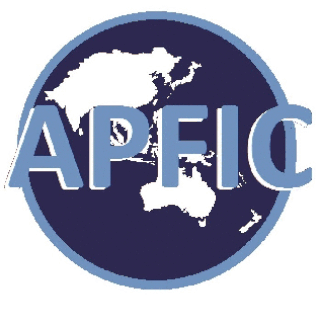This article needs additional citations for verification .(June 2016) |
The International Rice Commission (IRC) is an intergovernmental organisation of states that produce rice. It is a subsidiary organisation of the Food and Agriculture Organization (FAO). The IRC promotes international co-operation in the production, conservation, distribution, and consumption of rice.
The establishment of the IRC was proposed in May 1948 by the delegates of a FAO meeting on rice in the Philippines. In April 1948, the FAO Council followed up on this recommendation by producing a multilateral treaty known as the Constitution of the International Rice Commission. The Constitution entered into force on 4 January 1949 and the first session of the IRC was held in Bangkok later that year. The 12 founding members were Burma, Ecuador, Egypt, France, India, Italy, Mexico, Netherlands, Pakistan, Philippines, Sri Lanka and Thailand. The IRC meets in regular session at least once every four years.
The IRC is open to all members and associate members of the FAO. As of 2013, the IRC has 62 member states representing over 98 per cent of global rice production:
 Australia
Australia  Bangladesh
Bangladesh  Benin
Benin  Brazil
Brazil  Burkina Faso
Burkina Faso  Cambodia
Cambodia  Cameroon
Cameroon  Chad
Chad  China
China  Colombia
Colombia  Democratic Republic of the Congo
Democratic Republic of the Congo  Cuba
Cuba  Dominican Republic
Dominican Republic  Ecuador
Ecuador  Egypt
Egypt  France
France  Gambia
Gambia  Ghana
Ghana  Greece
Greece  Guatemala
Guatemala  Guinea
Guinea  Guyana
Guyana  Haiti
Haiti  Hungary
Hungary  India
India  Indonesia
Indonesia  Iran
Iran  Italy
Italy  Japan
Japan  Kenya
Kenya  Korea, South
Korea, South  Laos
Laos  Liberia
Liberia  Madagascar
Madagascar  Malaysia
Malaysia  Mali
Mali  Mauritania
Mauritania  Mexico
Mexico  Mozambique
Mozambique  Myanmar
Myanmar  Nepal
Nepal  Netherlands
Netherlands  Nicaragua
Nicaragua  Nigeria
Nigeria  Pakistan
Pakistan  Panama
Panama  Paraguay
Paraguay  Peru
Peru  Philippines
Philippines  Portugal
Portugal  Rwanda
Rwanda  Senegal
Senegal  Sierra Leone
Sierra Leone  Sri Lanka
Sri Lanka  Suriname
Suriname  Thailand
Thailand  Turkey
Turkey  United Kingdom
United Kingdom  United States
United States  Uruguay
Uruguay  Venezuela
Venezuela  Vietnam
Vietnam
